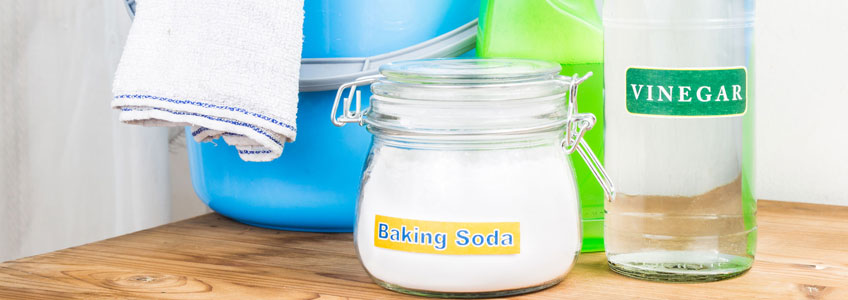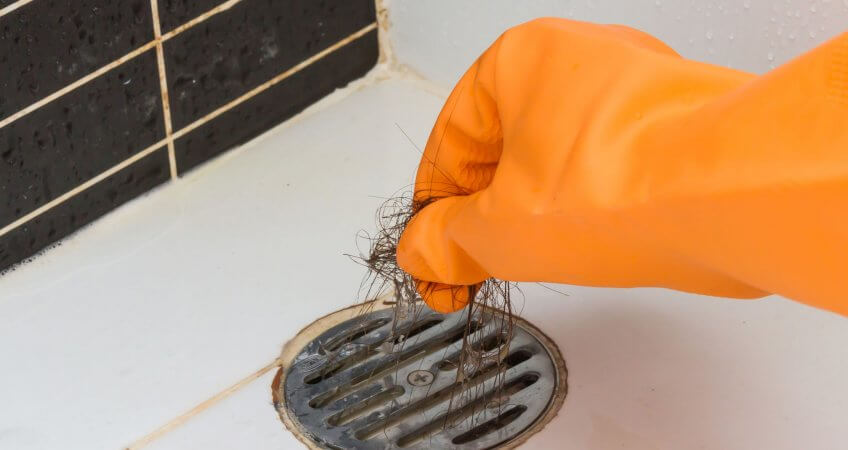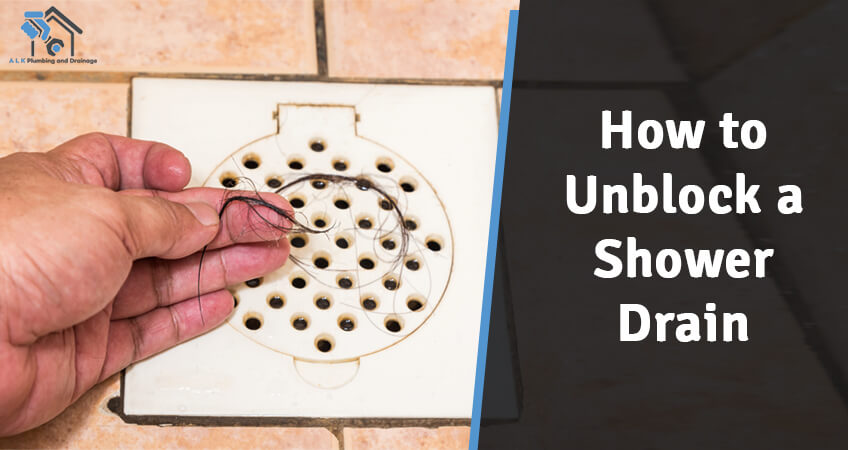There comes a time in every homeowner or even renters life when they need to unblock a shower drain. Things like hair, soap scum, and mineral build up are all common in the bathroom, and they can easily clog up your shower drain before you know it. With the advice here, you’ll be able to ensure that your shower drain stays clear and that you can avoid clogs in the foreseeable.
How To Unclog Your Drain Using Boiling Water

Boiling water can be an efficient method to unclog the drains full of soap scum and grease. However, it isn’t always the most effective method to use – so you need to be sure it’s right for you before proceeding. If your pipes are PVC, or entirely clogged, then you should avoid using boiling water. The results can be hit and miss if you don’t ensure that this is the right method for you to use first. Boiling water can easily soften and melt PVC joints. In some cases, boiling water may even push the clog further into your pipes, making it even harder to remove.
Providing you don’t have PVC pipes, then it may not hurt just to try this method. Just bear in mind it might not work right away and you will likely need to use other techniques to fix your issue.
How to Unclog a Shower Drain Using Baking Soda and Vinegar

In many cases, if your clog is caused by organic matter such as hair, vinegar and baking soda can work to eradicate your clog. Simply pour a cup of baking soda down the drain, and then use equal amounts of vinegar. You will want to leave this for a few minutes, allowing the solution to bubble and foam, and then follow with hot (but not boiling) water. You then let this mixture sit for a couple of hours.
If the drain is not flowing freely once you have tried this, you can repeat the process to see if it works a second time around. You may even want to leave the solution overnight if your clog is particularly stubborn.
How to Unclog a Shower Drain by Hand

Of course, if you’d prefer to try to unclog your drain without using anything at all, you can try to do this by hand. Let water drain slowly, and always wear rubber gloves to protect your hands from anything they may come into contact with. You may need to use a screwdriver to remove the drain grille. Pull out the things you can see first if you can reach them, such as hair and small objects.
Once you’ve removed everything you can reach by hand, if the water is still not flowing freely then you may want to try another method.
How to Unclog Your Shower Drain Using a Hook
A simple hook or wire hanger can be used in order to help you unclog your drains. You can use a pair of pliers to unwind the hanger and straighten it out, leaving a slight hook at the end. Again, you’re going to want to wear rubber gloves to protect your hands. Using the hook you want to try to pull as much hair and gunk out of the drain as you can. However, if minerals are the reason for the clog, then you likely won’t be able to do anything with a hanger.
What Causes a Drain to Become Clogged
Knowing what causes a drain to become clogged will help you to avoid it in the future. It’s all too easy for small problems to quickly escalate, so avoiding blockages from the first instance is the best thing you can do. A clogged shower drain can cause corrosion, flooding, sewage backup, and very expensive repairs.
Below, we’ll list a few things that can be the cause of a blocked drain.
- Hair: Hair is one of the worst culprits for drain blockages, as it easily binds with grease and sticky substances and turns into clogs. A hair guard can stop this from happening.
- Soap: Traditional bars of soap are actually made of things like grease and fat. These ingredients combine with minerals in your water and then turn into a hard residue called soap scum. By sticking to soap free washes you can avoid this harmful build up.
- Dirt: If you get in the shower and you’re particularly dirty, perhaps after playing sports outside, then you may be causing problems in your drains. Make sure you get as much dirt off your body as possible before getting in the shower.
- Mineral Buildup: Minerals dissolved in hard water will build up and cause masses in your drains that are insoluble. If your water is hard, you could potentially install a water softener for your home. However, if that isn’t an option for you, simply descaling and removing sediment build up is key. These things can be difficult to remove when they are established, so staying on top of this is key.
- Small Objects: There’s a chance small objects can make their way into your plumbing supply. Absolutely nothing but water should be making its way down your shower drain.
Symptoms of a Clogged Shower Drain
If you’re unsure whether there’s a problem with your shower drain, you should look out for the symptoms that could indicate there is a problem. Below you’ll get a better idea of what they are:
- The Smell: A certain smell can giveaway that there is a problematic blockage. If something is blocking the drain a bad smell will likely arise first, before any visual symptoms. If you notice an odour, acting fast will save damage and money in the long run.
- The Sounds: If your pipes and fixtures are making strange noises, this can also be an indication that you have a blockage. Gurgling noises from your drain can be an early warning sign that air is trapped by the blockage.
How to Prevent Future Clogs
So, with all of this in mind, how do you prevent future clogs? Prevention will always be better than a cure, so make sure you take the steps outlined here.
- Invest in a Drain Protector/Cover: Buying a drain protector or cover could be the first step to take if you don’t currently have one. You can find a number of styles depending on what you need, from silicone to stainless steel. This will catch the hair and let the water drain away. Hair is the number one enemy of the shower drain, so stop it from clogging up in the first instance by buying this inexpensive tool.
- Don’t Get in the Shower When You’re Covered in Dirt: whether you’re covered in dirt, grease, or something else doesn’t matter. Yes, you want a shower, but you shouldn’t step straight into the shower without getting as much off of yourself as possible first. Try rinsing yourself off outside if you can so that you’re not sending all of that dirt and gunk down the drain. This won’t always be viable, but you’ll be glad you did it when you avoid long term clogging issues.
- Avoid Oil and Grease: Rather than using soap that is made from damaging oils and fats, buy a body wash that won’t clog up your drains. Many traditional bar soaps are made from vegetable oils and animal fats, so don’t be drawn in by pretty packaging. Instead, learn about the ingredients and what is best for both your body and your drains.
- Rinse The Shower: Once you have stepped out of your shower, always rinse everything down the drain for a moment or two afterwards. You don’t want to waste water (protecting the environment is imperative, after all) but you should make sure that you have given everything a good flush to avoid build up.
- Keep Vinegar in The Bathroom: Keeping the cosmetic essentials in the bathroom is a must, but don’t forget your bottle of vinegar. A bottle of vinegar has so many uses around the home, and it’s a great way to keep your drains clear. By pouring half of a bottle of vinegar down your drains every 3 months, regardless of whether you have a problem or not, you will get rid of any clogs that may be forming. Just let it sit for 10 minutes, and then rinse with hot water afterwards and you should be able to avoid many problems.
- Always Have Baking Soda on Hand: As well as vinegar, make sure you always have baking soda on hand, too. This is a great cleaning product followed with hot water, and can help to get rid of any nasty smells, too. If you hate the smell of vinegar, baking soda is a good alternative, although they both have their place when you’re looking to prevent clogs.
Now you know everything you need to know to unblock a blocked shower drain. Don’t let problems continue to build up, as they can become very expensive.
Get a FREE Quote today – Call 0800 328 2489 | 07879 000 300

